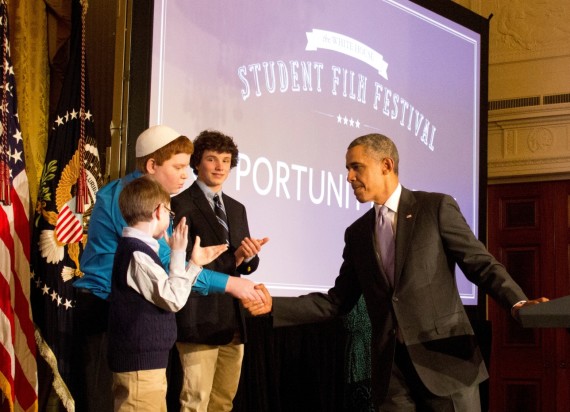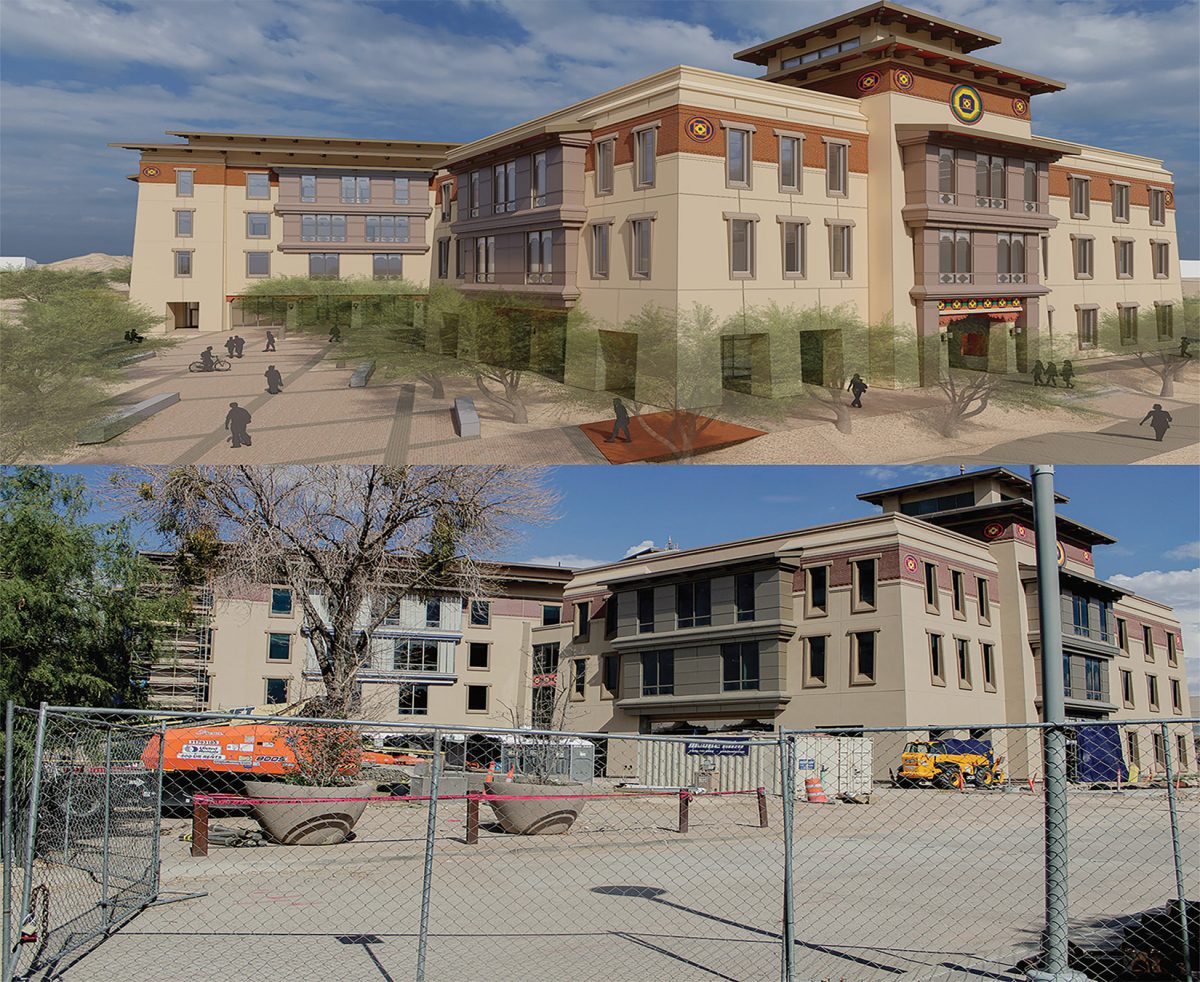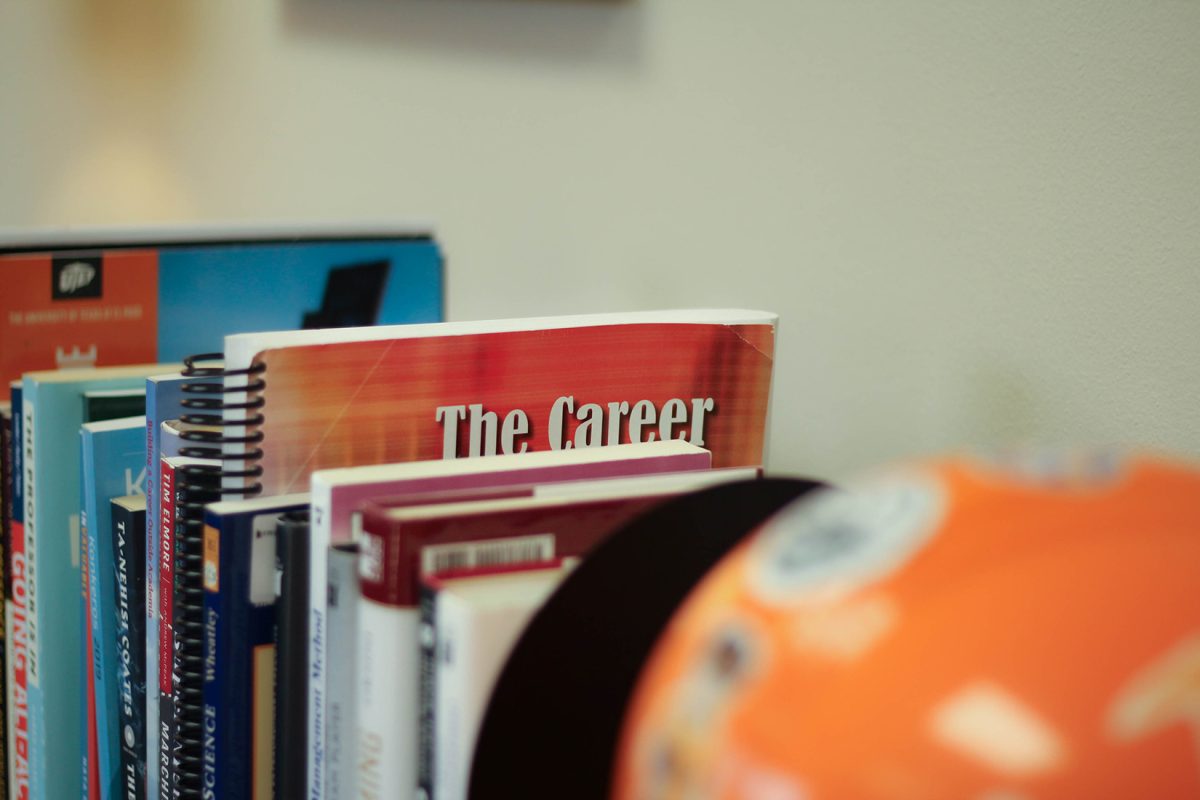WASHINGTON – Inside the halls of David Posnack Jewish Day School in Davie, Fla., a robot takes part in group projects, asks questions about science and math and jokes around with friends.
Behind the device is seventh-grader Kyle Weintraub, 12, also from Davie, who is being treated for lymphoma in Philadelphia, but chose to continue his studies at Posnack with the help of the robot.
“I use my computer mouse to drive through basically the whole school, and I just go to my classes and attend them like normal,” Kyle said in an interview Feb. 28.
Kyle’s story is the subject of “Posnack Technology: A Day in the Life of Kyle,” a film produced by four Posnack students and a finalist at the first White House Film Festival.
Hosted by President Barack Obama, the festival showcased 16 student films from across the country in the East Room of the White House to an audience of students, parents and educators. These films were selected from a group of 3,000 submissions in four categories — all showcasing the role of technology in today’s classrooms.
“A wonderful example of the difference technology can make. Even as he is getting medical treatment and fights to get better, Kyle can keep up with his studies,” Obama said before he and Kyle exchanged a handshake on stage. “Without even leaving his room in Pennsylvania, he goes to school in Florida. The robot doesn’t have a name, they just say, ‘Hey, Kyle.”
Kyle has been using the VGo Communications system, a robot that uses the Internet to take his image and sound from classroom to classroom on his command since the fall when he and his mother moved to Philadelphia for his cancer treatment.
At first, Kyle was using slides from teachers’ lectures to learn the material, but his mother, Robin Weintraub, said it just wasn’t working.
“Once school started, it was difficult. He wouldn’t interact. He wasn’t happy,” she said. “Now, he wakes up every morning, goes right to his computer, turns it on … and once he goes, I sit in the other room and have to smile.”
Sixth-grader Marnie Rosenblatt, a classmate who worked on the film, raised money to get Kyle back in the classroom as part of her Bat Mitzvah project.
“I saw the robot on a commercial,” Marnie said. “And when I actually saw it, it was even better.”
The robot cost $6,700, plus a yearly $1,000 licensing fee, which is being paid by donations and his parents.
Junior Rachel Huss and senior Justin Etzine worked with Kyle and Marnie to produce the 2-minute, 45-second film.
“I think that we are the first of many schools to do this. I think Kyle and this whole project will open doors for many kids who didn’t know this even existed,” Rachel said.
Justin, who found out the film was selected for the festival the same day he received his first college acceptance, said that this technology adds a new element to virtual education.
“You always had that education component, but you always lost that social component,” Justin said. “Through the VGo you get to see your friends. You get to go through the daily motion of going classroom to classroom.”
Kyle’s favorite part about the robot: “I don’t have to pack up after every class.”
The White House Film Festival is part of the administration’s ConnectED campaign, which aims to connect 99 percent of students to broadband and wireless internet within five years.
Kyle said that, while the are other students using the system, he and his classmates are the first ones to publicize it.
“I hope people know that there are options out there, they’re not just stuck,” Kyle said.
Melhor Leonor is a senior journalism major at Florida International University in Miami. She is currently participating in the Scripps Howard Foundation’s Semester in Washington program. She can be reached at [email protected].





